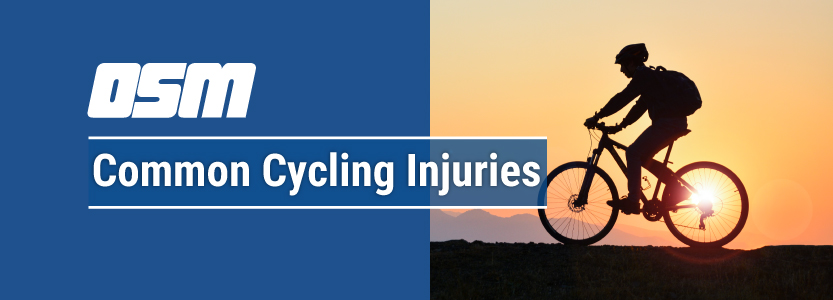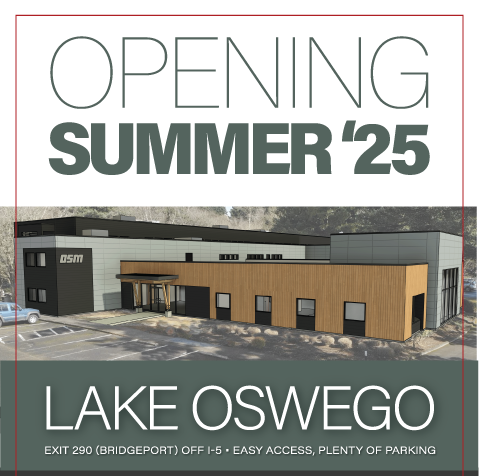What Are the Most Common Cycling Injuries and How Can They Be Prevented?
Article featured on UR Medicine
Knee Pain
The knee is the most common site for overuse injuries in cycling. Patellofemoral syndrome (cyclist’s knee), patella and quandriceps tendinitis, medial plica syndrome, and iliotibial band friction syndrome are a few of the more common knee overuse injuries. The first four injuries mentioned involve pain around the kneecap, while the last condition results in outer knee pain. Shoe implants, wedges beneath the shoes, and cleat positions may help prevent some overuse injuries.
Head Injuries
One of the most common injuries suffered by cyclists is a head injury, which can be anything from a cut on the cheek to traumatic brain injury. Wearing a helmet may reduce the risk for head injury by 85 percent. The majority of states have no laws governing the use of helmets while riding a bicycle, but helmets are readily available for purchase and typically low in cost.
Neck/Back Pain
Cyclists most likely experience pain in the neck when they stay in one riding position for too long. An easy way to avoid this pain is by doing shoulder shrugs and neck stretches that help relieve neck tension. Improper form also leads to injuries. If the handlebars are too low, cyclists may have to round their backs, thus putting strain on the neck and back. Tight hamstrings and/or hip flexor muscles can also cause cyclists to round or arch the back, which causes the neck to hyperextend. Stretching these muscles on a regular basis will create flexibility and make it easier to maintain proper form. Changing the grip on the handlebars takes the stress off of over-used muscles and redistributes pressure to different nerves.
Wrist/Forearm Pain or Numbness
Cyclists should ride with their elbows slightly bent (never with their arms locked or straight). When they hit bumps in the road, bent elbows will act as shock absorbers. This is also where changing hand positions will help reduce pain or numbness. Two common wrist overuse injuries, Cyclist’s Palsy and Carpal Tunnel Syndrome, can be prevented by alternating the pressure from the inside to the outsides of the palms and making sure wrists do not drop below the handlebars. In addition, padded gloves and stretching the hands and wrists before riding will help.
Urogenital Problems
One common complaint from male riders who spend a lot of time riding is pudendal neuropathy, a numbness or pain in the genital or rectal area. It is typically caused by compression of the blood supply to the genital region. A wider seat, one with padding, a seat with part of the seat removed, changing the tilt of the seat, or using padded cycling shorts will all help relieve pressure.
Foot Numbness and Tingling
Foot numbness and tingling are common complaints, and shoes that are too tight or narrow are often the cause. In addition, foot numbness can be due to exertional compartment syndrome. This arises from increased pressure in the lower leg and resulting compression of nerves. The diagnosis is made by pressure measurements and is treated with surgical release.
When Should I Seek Care From a Physician?
Any injury that is accompanied by bleeding, severe pain, loss of sensation, or increased weakness should be seen by a physician. Other pain due to overuse or mild injuries can be treated by rest and taking pain relievers such as ibuprofen or acetaminophen. Swelling and pain can also be treated with alternating ice and heat therapy.
The Orthopedic & Sports Medicine Center of Oregon is an award-winning, board-certified orthopedic group located in downtown Portland Oregon. We utilize both surgical and nonsurgical means to treat musculoskeletal trauma, spine diseases, sports injuries, degenerative diseases, infections, tumors and congenital disorders.
Our mission is to return our patients back to pain-free mobility and full strength as quickly and painlessly as possible using both surgical and non-surgical orthopedic procedures.
Our expert physicians provide leading-edge, comprehensive care in the diagnosis and treatment of orthopedic conditions, including total joint replacement and sports medicine. We apply the latest state-of-the-art techniques in order to return our patients to their active lifestyle.
If you’re looking for compassionate, expert orthopedic surgeons in Portland Oregon, contact OSM today.
Phone:
503-224-8399
Address
1515 NW 18th Ave, 3rd Floor
Portland, OR 97209
Hours
Monday–Friday
8:00am – 4:30pm




